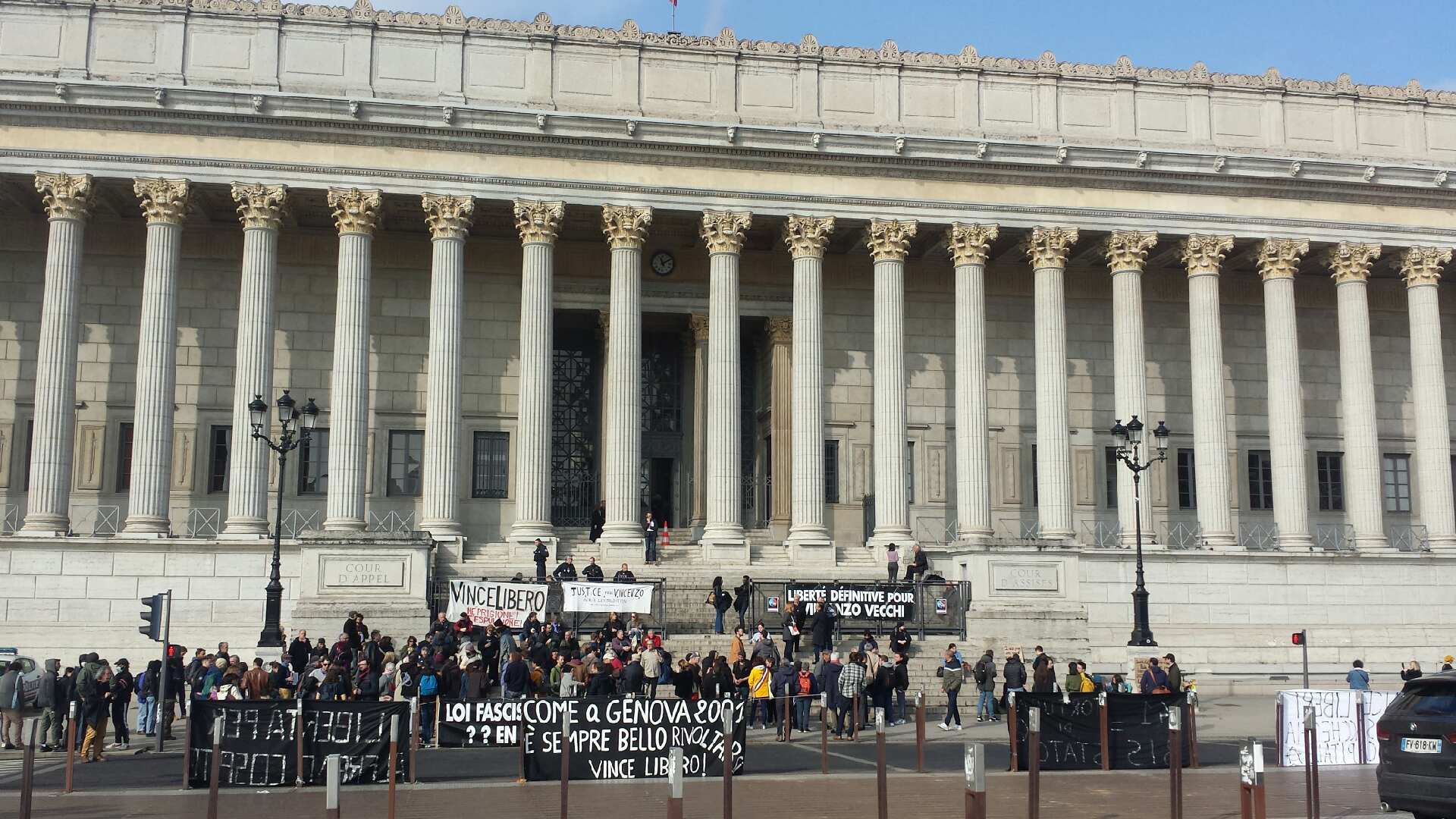For the third time, a court in France rejects the Italian arrest warrant for the anarchist Vincenzo Vecchi. The 49-year-old Italian is to be imprisoned for summit protests in 2001. France’s prosecution can appeal one last time.
More than 20 years after the protests against the G8 summit in Genoa, an appeal court in Lyon has prevented the execution of a European Arrest Warrant against anarchist Vincenzo Vecchi in the third instance. According to the AFP news agency, which claims to have received a copy of last Friday’s ruling, the judges see the transfer to Italy as a “disproportionate interference with the right to respect for his private and family life”. The alleged offences – including the destruction of a bank and the arson of a car – in July 2001 were committed a long time ago, they say. Vecchi had been living in the village of Morbihan in Brittany for 13 years and had also founded a family. He was “socially well integrated” there, the court said.
Vecchi had been convicted of “devastation and looting” in the Ligurian capital and was therefore to serve almost twelve years in prison. A total of 25 Italian activists stood trial in Italy on the same charge. Eleven of them received heavy sentences, which were even increased after an appeal in 2009. Among the accused was Vecchi’s then girlfriend Marina Cugnaschi, who was sentenced to over twelve years in prison. Francesco Puglisi received the highest prison sentence of 15 years. “This is not a sentence, this is an act of revenge,” Haidi Giuliani, the mother of Carlo Giuliani, who was killed by police at the Genoa summit protest, had commented at the time. Vecchi had subsequently fled to France.
Before the trial in Lyon, ten well-known personalities had demanded in an editorial in the newspaper “Le Monde” that Vecchi’s extradition be prevented. Among them were the Nobel Prize winner for literature Annie Ernault, the filmmaker Ken Loach and the author Noam Chomsky.
Appeal courts in Rennes and Angers had already rejected the implementation of the arrest warrant on the grounds that there was no equivalent in France for the offence of “devastation and looting”. The Italian penal code’s section 285 was created in 1930 under the fascist Mussolini regime and was also used against protesters after the 2001 G8 summit. The core of the law is the provision that the accused do not have to have committed the acts themselves. Only their presence at the scene of the crime, and thus the court’s assumed endorsement of what happened there, is sufficient for collective punishment.
The public prosecutor’s office may appeal for a third time. This would be possible because France is bound by EU community law and must therefore implement a European Arrest Warrant. However, this only applies to a total of 32 offences, which must be equally punishable in the respective countries. However, the law in France does not recognise a paragraph such as the one on “devastation and looting”.
However, in a decision of July 2022, the European Court of Justice recognised Mussolini’s law on “devastation and looting” and ruled that it did not require strict equivalence with a French criminal offence. The human rights organisation Fair Trials criticised the ruling as an abuse of the European Arrest Warrant. They argue that the mutual recognition of the judiciary of other member states, as promised by France in the EU treaties, should not collide with obligations to respect fundamental rights in one’s own country.
“We solemnly ask the prosecution not to file an appeal in cassation and thus to put an end to this insane affair in an elegant and dignified way,” the members of the Supporters’ Collective for Vincenzo Vecchi wrote in their press release on Friday. In this way, the judges could give the now 49-year-old Italian “the opportunity to resume a peaceful life in Morbihan”.
Published in German in „nd“.
Image: Supportes in front of the court in Lyon (Soutien à Vincenzo Vecchi).





Leave a Reply